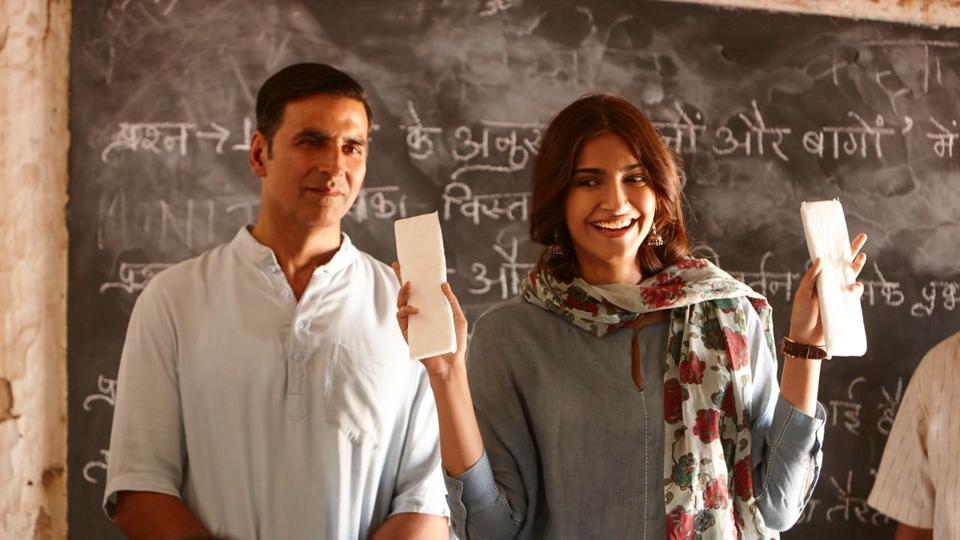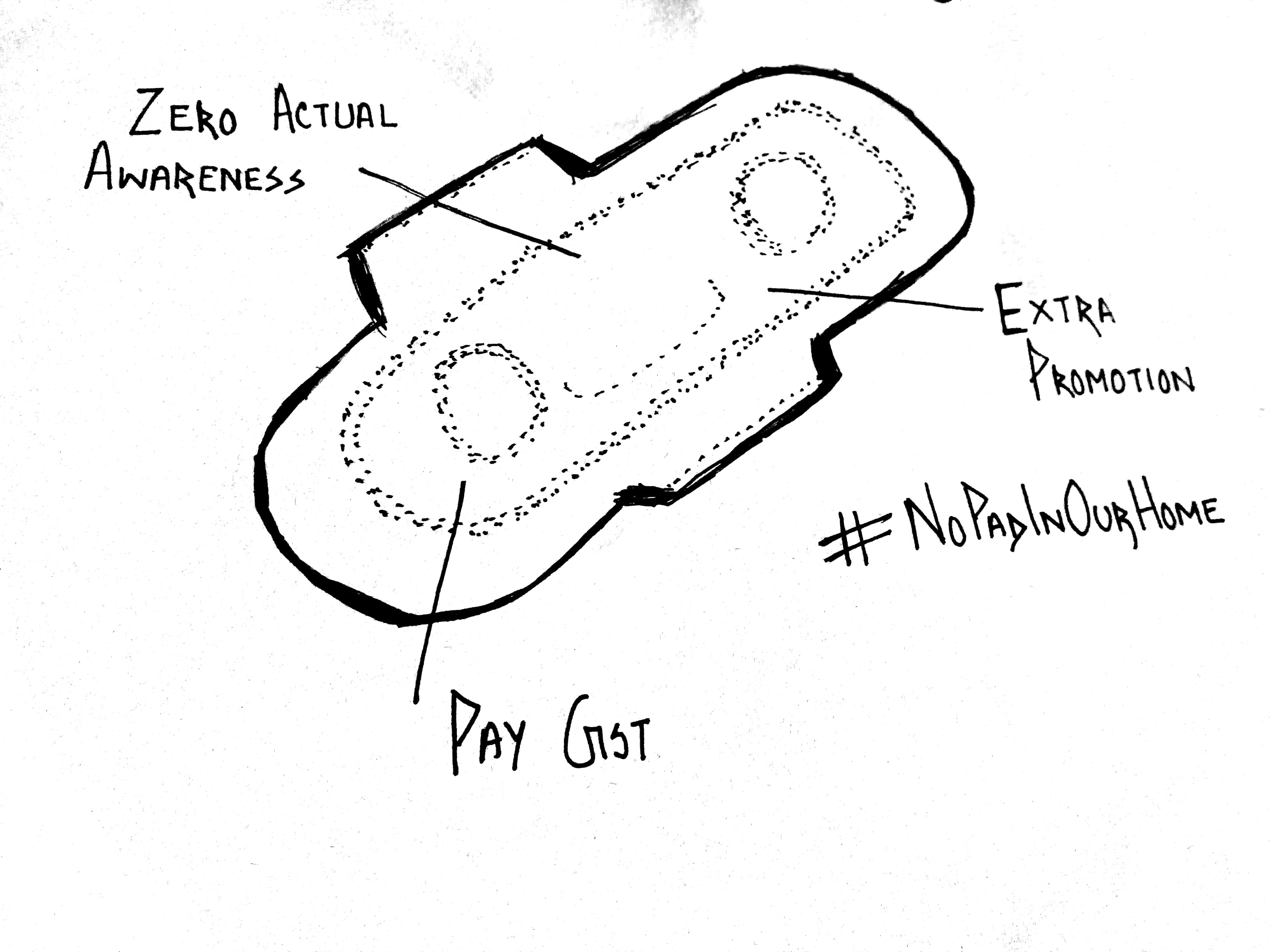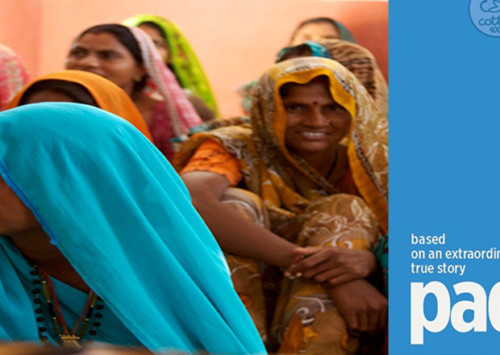Beyond the #PadManchallenge: A stark reality
As viral as trends go, the #PadManchallenge has taken Twitteratis and Bollywood by storm, albeit with an attached noble cause, however, failing to address the ‘rurality’ of the issue.
Padman directed by R.Balki starring Akshay Kumar, Radhika Apte and Sonam Kapoor has been on the news for its bold step to set into motion the story of Arunachalam Muruganantham, a Padmashree winner and social entrepreneur who revolutionised the manufacturing of low-cost sanitary napkins for women. The film released on Friday has been applauded all over India for garnering attention on an important topic like menstrual hygiene.
Yes that’s a Pad in my hand & there’s nothing to be ashamed about. It’s natural! Period. #StandByHer
Copy, Paste this & Challenge your friends to take a photo with a Pad!
Here I am Challenging @akshaykumar @mrsfunnybones @sonamakapoor @radhika_apte pic.twitter.com/ULJuJmSeZN
— A Muruganantham (@murugaofficial) February 2, 2018
Just hanging around in the gym.. with a pad 🙂 no biggie! Thank you @akshaykumar for the challenge.. I shall challenge my fellow gym-ers @YasminBodyImage @Sophie_Choudry & @impoornapatel #PadManChallenge pic.twitter.com/xHLaSwt39Q
— Alia Bhatt (@aliaa08) February 2, 2018
Forbes reports, “Padman opened in 2,700 screens nationwide, and earning a dismal USD 1.5 million on its first day. On Saturday and Sunday, it took in another USD 4.1 million, taking the three-day tally to USD 5.6 million. Overseas, Padman has launched in virtually every major market, save for China. In the U.S., Canada, U.K., Australia and New Zealand, the film raked in USD 307,083 on its first day.”
From item dances and objectifying women, Bollywood has surely come a long way to talk about menstrual hygiene in a society where the same is still considered a taboo. With Bollywood trying to set in a European realist touch to its films, in order to keep up with the changing tastes of the audience and rake in more moolah in the process, here’s a toast raised to sensitising.
But if one has learned anything about sensitising, it is that it works well on an apparent surface level while the bottoms are left to fend on their own. Here is what we mean:
The #PadManchallenge initiated by Arunachalam Muruganantham, went viral as he shared a photo holding a pad on his Twitter handle while challenging the cast of the film, Akshay Kumar, Radhika Apte and Sonam Kapoor and producer Twinkle Khanna to do the same. As more celebrities followed lead, taking on the challenge from one another, a movement started that aimed to encouraged women and men from all strata to discuss menstruation and menstrual hygiene. While all this, we assume is in good faith and not a silent promotional trick or a plea to stay relevant in social media here’s a basic fact- 43 pc of Indian women did not have access to sanitary essentials at the beginning of periods.
Behind closed doors
According to a survey conducted by Women Health Organisation, about 43 pc of Indian women did not have access to sanitary essentials at the beginning of periods, while 36 pc felt uncomfortable in buying them with other customers around. As many as 67 pc women have had to borrow a sanitary essential from a friend, colleague or family member.
The survey was conducted in October 2017 and included women respondents from more than 35 cities all over India including Bengaluru, Chennai, Cuttack, Delhi, Indore, Jaipur, Kanpur, Kolkata, Ludhiana, Mumbai, Ranchi, Srinagar, Surat, and Thiruvananthapuram.
Hariom Tyagi, CEO of Wet-Dry Personal Care, which owns Everteen, a brand of premium feminine intimate hygiene products said, “The grim reality today is that one in three women hesitates in buying sanitary essentials at a store in the presence of other customers”.
A 2017 study conducted by the Centre for World Solidarity (CWS), found that menstrual hygiene is still a grossly neglected subject across all 21 districts of Telangana.
The latest National Family Health Survey 2015-16 also revealed that Andhra Pradesh and Telangana do not feature among the seven states in India where 90 pc or more women in 15-24 age group use hygienic protection during menstruation, say healthcare experts.
A study conducted by Chandigarh’s Postgraduate Institute of Medical Education and Research published in International Journal of Community Medicine and Public Health in 2016 showed the deprived status of the implementation of the Centre’s Menstrual Hygiene Scheme (MHS). MHS was launched by the health ministry in 2011 to provide subsidised sanitary napkins in the rural areas.
The study found that 80 pc adolescent girls were aware of sanitary napkins but only 30 pc have actually used them.
Matters became worse when the Centre imposed a 12 pc tax rate on sanitary napkins during the GST revisions. Finance Minister, Arun Jaitley maintained that the same was important to prevent Indian brands from losing out to Chinese counterparts which came cheaper. Following dissents across educational institutions and other places, the government still stuck to the proposed GST slab.
“A small, first step”
Even before Padman, Phullu a 2017 Bollywood drama film directed by Abhishek Saxena that strived to educate the Indian public about menstruation and the proper hygienic treatment of periods was given an Adult (A) rating by the Central Board of Film Certification (CBFC). However, it failed to leave a mark and was the audience easily dismissed it.
Sathi, a women’s rights activist from Bengaluru who is a Psychology major, states, “For me, the film is a small, first step in many to raise a dialogue about a pressing issue that is still considered taboo in India, however, the viral challenge in itself is flawed and goes against the agenda of the film, according to me; because I believe that it is aimed to be an awareness issue for everyone, not just privileged millennials who just want two-minutes of fame. When you ask people to leave their social masks and come to the field to protest and raise awareness, the numbers are ever dwindling”.
“Today anything and everything can be a viral content depending on what clicks with the audience, but it is not enough to base a movement on. This reflects upon the simple fact that everything needs to be well wrapped in order to for the audience to accept it. In the process, we are missing out on issues and dialogues that matter”, she concludes.













